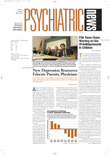American diplomats and their families assigned to embassies abroad are vulnerable to crisis situations such as terrorist attacks, hostage taking, assassinations, and kidnappings.
Embassy consular affairs staff who serve American citizens abroad have also been the target of attacks in recent years. In the past year alone, the American consulate in Jeddah, Saudi Arabia, and the consular section of the American embassy in Tashkent, Uzbekistan, have been bombed, and Americans and foreign nationals have been injured, according to psychiatrist Samuel Thielman, M.D., Ph.D., chief of mental health services at the U.S. Department of State. He is the immediate past chief of crisis response mental health services at the department, a position created recently to organize and coordinate psychiatric responses to disasters and crises overseas.
Thielman oversees 14 full-time psychiatrists in the Foreign Service who rotate to new assignments every two to four years, including Washington, D.C. Regional Medical Officer-Psychiatrists (RMO-Ps) cover more than 240 embassies and consulates worldwide, Thielman told Psychiatric News.
The State Department realized in the 1970s that providing on-site mental health counseling and treatment and establishing community programs were more effective and less costly alternatives to evacuating personnel who were suffering from mental health problems after a disaster or other crisis.
The first RMO-P position was established in Vienna, Austria, to serve posts primarily in Eastern Europe. Other positions were then established in Bangkok, Thailand; Cairo, Egypt; Monrovia, Liberia; and New Delhi, India, according to Thielman. These RMO-P “circuit riders” visit several embassies in their region and conduct crisis intervention, teaching, supportive psychotherapy, and consultations with school psychologists, counselors, and others.
Psychiatrist Kenneth Dekleva, M.D., is based at the U.S. Embassy in New Delhi. When Psychiatric News reached Dekleva by telephone in late January, he had recently visited embassy staff in Colombo, Sri Lanka, and southern India to discuss how they were coping in the aftermath of the December 2004 tsunami. The American embassies in Thailand and Sri Lanka received the most tsunami-related inquiries about Americans, because of those countries' popular beach resorts.
“It is critical for our psychiatrists to be well-versed in disaster responses.”
“Some employees of the embassy in Colombo were on the beach in southern Sri Lanka when the tsunami struck and barely escaped. They witnessed people being swept away and a lot of death and destruction.” Dekleva said.
Consular affairs employees were assigned to help local authorities with identifying dead bodies, which involved handling human remains. Dekleva talked to the staff about common psychiatric reactions and how to avoid physical exhaustion by working in regular shifts, taking breaks, and eating regularly.
The consular affairs staff in Colombo responded to hundreds of inquiries from concerned relatives and friends about American citizens presumed to be somewhere in the country at the time of the tsunami.
The Bureau of Consular Affairs in Washington, D.C., estimated that it received 30,000 phone calls within a few weeks of the tsunami, according to a State Department spokesperson.
By mid-February, the bureau confirmed that 18 American citizens had died as a result of the tsunami in Thailand and Sri Lanka. Fifteen Americans in the affected region were presumed dead, given their proximity to the tsunami.
Several Sri Lankan employees of the American embassy lost relatives in the tsunami. “I was impressed with their dedication to helping American citizens despite their personal loss and hardship,” Dekleva said.
The consular affairs staff also made arrangements for visiting members of Congress and the Bush administration.
“Embassy and consular staff are highly dedicated and resilient individuals. It was deeply rewarding for me personally and professionally to be able to listen to their stories and provide support and consultation. The next challenge will be the slow and painful process of helping Sri Lanka in its reconstruction efforts,” Dekleva commented.
Many of his Foreign Service colleagues also have experienced the aftermath of a natural disaster, terrorist event, or crisis during an overseas assignment.
Thielman, for example, was assigned to the U.S. Embassy in Nairobi, Kenya, in 1998 after bombs killed 213 people and injuredd about 4,000. Bombs exploded nearly simultaneously at the U.S. Embassy in Dar Es Salaam, Tanzania, killing 12 people and injuring about 85, according to the State Department.
After the Nairobi bombing, Thielman collaborated on postdisaster mental health studies with researchers including psychiatrists Carol North, M.D., and Betty Pfefferbaum, M.D. The papers resulting from their studies have been accepted for publication, said Thielman.
“It is critical for our psychiatrists to be well-versed in disaster responses,” said Thielman. North, Pfefferbaum, and disaster psychiatry specialist and researcher Robert Ursano, M.D., have presented their work to State Department psychiatrists meeting in conjunction with APA annual meetings in recent years.
Dekleva praised the APA disaster psychiatry workshops and seminars at annual meetings that he attended.
Information about Foreign Service Regional Medical Officer-Psychiatrists is posted online at<www.careers.state.gov/specialist/opportunities/medpsych.html>.
Information about U.S. Department of State tsunami relief efforts is posted at<www.state.gov/p/sa/tsunami>.▪
